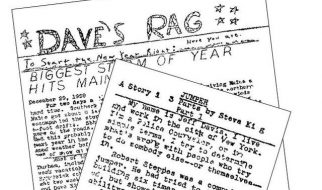An exploration of Marxist alienation found in Franz Kafka?s novella.
 Photo by Alan Emery on Unsplash
Photo by Alan Emery on Unsplash
It is highly recommended you read or listen to a copy of Kafka?s The Metamorphosis before reading ahead. Plot and character details are spoiled in the article below.
Published in 1915, Franz Kafka?s The Metamorphosis is a gruelling and ironic depiction of the pressures imposed by family and profession in the Twentieth Century. The novella centres around travelling salesman Gregor Samsa who, one morning, finds himself transformed into an insect. What follows, depending on the interpretation, is a reflection of how modern life provides a misunderstanding of predicament and a lack of empathy towards those who have been beaten down by an unforgiving capitalist system.
Equally, The Metamorphosis asks questions of Gregor himself. Over time he has continued to disregard his own well-being and autonomy, seeing himself as the saviour of his family?s debts. Yet, by doing so, he has missed the fact that his family appear to resent the house he has chosen to rent, or that their debts are not quite as bad as they seemed.
He has carried a cross which he need not have bore.
The Metamorphosis is a much admired and analysed text which has provided many themes and interpretations for students of literature in the last century.
Its appeal can be summarised in the words of Vladimir Nabokov:
?In The Metamorphosis, contrast and unity, style and matter, manner and plot are most perfectly integrated.?
Over the next three articles, I will highlight the overriding theme of alienation, while also providing one interpretation which demonstrates how ever-relevant Gregor?s story remains to this day.
Alienated from your Livelihood.
A common commentary of the text is a Marxist critique of Gregor?s predicament.
In the opening, Gregor laments his job as a travelling salesman; he complains about the constant flux and the lack of meaningful human connections that it entails.
?Work like this is far more unsettling than business conducted at home?worrying about train connections, the irregular, unpalatable meals, and human intercourse that is constantly changing, never developing the least constancy or warmth.? ? Gregor Samsa.
In this sense, Gregor?s position is typical because he has not opted for his job out of a passion to sell, but rather, he feels obliged to work in order to free the family from his father?s debts.
?If I didn?t have to hold back for my parent?s sake, I?d have given notice long ago.? ? Gregor Samsa.
Gregor shares his dream early on of how he hopes, after five or six more years, that he?ll have done enough to quit. Nonetheless, it is not evident this is entirely the case, and either way, the toll his labour will take on him by the end of the novella cannot be worth the price he pays for it.
Yet, despite this, Gregor doesn?t appear to greatly resent the work ? one can only assume because he, in part, enjoys the growing dependency his family have on his wages.
What is clear is that he would prefer a different set of circumstances; particularly concerning his superiors who provide a great source of anxiety.
The first part of the book is centred around the impact his transformation has had on his ability to make it to work. What should be a small mishap, is treated as suspicious, with the Chief Clerk arriving to question Gregor?s motives.
It is here that we are exposed to just how much Gregor?s job has estranged him from those in his life, as well as how he has been separated from his own desires.
His mother pleads with the Chief Clerk, desperately reminding him that Gregor is only slightly ill and that he does nothing other than think about his work.
?The office is the only thing that boy ever thinks of. It really bothers me that he never goes out in the evenings; he?s been back in the city an entire week now, but he spends every last second at home.? ? Gregor?s mother.
The implication here is that Gregor has no real life outside of his job. He doesn?t meet others in town, nor does he appear to have any opportunities to pursue romantic connections. Perhaps most disheartening, at no point in the entire story does it mention a friend or friends. No one makes a house call to check if Gregor is OK, or whether his health is improving.
The final section of the part one accentuates Gregor?s lack of worth in the eyes of his employer and is a powerful statement of how expendable some employees are when they appear to be struggling and are not maximising profit for the company.
Earlier, after demanding that Gregor shows his face, the Chief Clerk also accuses him of taking money which he was entrusted to bring back to work. The accusation appears misplaced but then he also embarrasses Gregor in front of his family by exposing his apparent lack of success.
?Your productivity of late has been highly unsatisfactory; admittedly this is not the best season for drumming up business? but a season in which no business at all is drummed up is something that does not, and indeed may not exist.? ? The Chief Clerk.
Eventually, after much toil, Gregor is able to open the door to confront his family and the Chief Clerk. It is here where he is exposed as the insect that he has become.
The response is one of shock and disgust, but all Gregor can do is think of is his job. He desperately pleads to the Chief Clerk not give up on him, appealing to his familiarity with what it is like to be a travelling salesman. He ends his cry by saying:
?Please sir, do not leave without saying something to show you agree with me a least to some small extent.? ? Gregor Samsa.
But nothing Gregor has said is rendered comprehensible and, out of panic, the Chief Clerk begins to leave. Gregor hopelessly tries to chase after him; his advances, however, are seen as signs of aggression.
The Conclusion to Part One.
Part one ends with Gregor seemingly losing his job and then, as if things couldn?t get any worse, his father bestows a warning of what is to come by forcefully pushing Gregor back into his room; leaving him alone and in despair.
Gregor has worked tirelessly to provide for his family in a job that separates him from his own nature. And then, as his situation worsens, he is unceremoniously rejected.
?What, then, constitutes the alienation of labor? First, in the fact that labor is external to the worker, that is, that it does not belong to his essential being; that in his work, therefore, he does not affirm himself but denies himself, does not feel well but unhappy, does not freely develop his physical and mental energy but mortifies his body and ruins his mind.
The worker, therefore, feels himself only outside his work, and feels beside himself in his work. He is at home when he is not working, and when he is working he is not at home. His work therefore is not voluntary, but coerced; it is forced labor. It is therefore not the satisfaction of a need, but only a means for satisfying needs external to it.
Its alien character emerges clearly in the fact that labor is shunned like the plague as soon as there is no physical or other compulsion.?
Karl Marx, ?Alienated Labor,? Economic and Philosophic Manuscripts (1844), The Portable Karl Marx (1983), p. 136.
All quotations from The Metamorphosis are sourced from the 2014 translation by Susan Bernofsky, published by W.W. Norton & Company, Inc.
Originally published at theapeironblog.com.
The Apeiron Blog ? Big Questions, Made Simple.
We know that Philosophy can seem complicated at times. To make things simple, we compile together the best articles, news, reading lists ? and other free recourses to guide you on your journey. To continue with us, follow us on Medium and sign up to our free mailing list.


